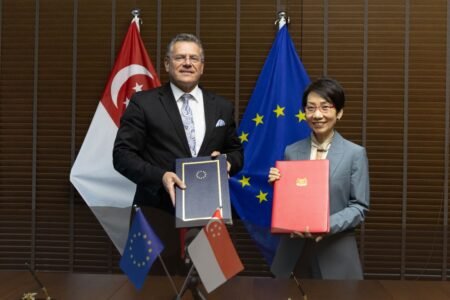Phishing is a growing problem for internet users.
In fact, in the UK alone, one in every 3,722 emails is a scam email attempt. This statistic is worrying for any employer or worker, but especially for the government. It is worrying because phishing, or any other social engineering attempt, is a big problem for all those that use emails and it can be very expensive to fix.
What is phishing?
Phishing is a type of cyberattack that comes under the umbrella term of social engineering. This type of attack is when a hacker uses a facade of a well-trusted and reputable company, institution, or colleague to target a group of end-users, most typically by email. Usually, this is done by saying a subscription has ended or that the computer has spyware or trojans hidden in the software. This is generally accompanied by a link the user needs to click on to ‘fix’ the issue.
However, this link will inject malware into your computer’s software and gain access to all of your files, therefore making it possible for the hacker to steal your sensitive data. They may also gather material to extort money or information about your company, an individual, or institution.
If they are trying to target one particular company or person, this is called spear phishing. This means they might use phishing to gather information on, for example, a company by targeting their employees and customers and then use that information to get into a company’s software or try to access their bank details.
However, hackers and cybercriminals are getting far better at this art and are catching many people by surprise. To learn more about the ins and outs of phishing, click here.
Why is phishing such a problem for EU governments?
Phishing is a huge problem for governments, especially. Not only is this because of how many people are affected by it across each country, but also because of how much accumulative data is stolen and how much money is spent on cybersecurity.
The UK government spends at least an average of £3 billion per annum on cybersecurity, which is a considerable cost, and this expense is increasing every year. Governments across the EU are also equally concerned. If data from the government is stolen and leaked, it can cause a serious issue for a country, especially if it is threatening sensitive data about the economy or those in senior or more powerful positions.
If a successful phishing attack hits an employee of the government, the hacker or cybercriminal could access some very sensitive information, such as military secrets. They could probably sell it on for a lot of money, meaning it can be very difficult for the government to track the leaked information and retrieve it, especially if it’s quickly passed from hand to hand or published.
In conclusion
There are many reasons why phishing attacks are so dangerous for governments. It is not only because of the costs and issues with retrieving stolen data but also because of how many people are affected by it per year – keeping up with the constantly evolving cybercriminals’ attacks should be a priority for all internet users.







